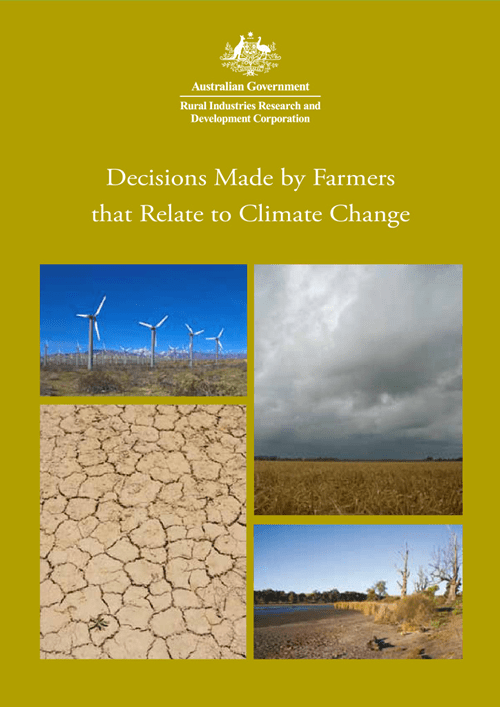This RIRDC paper reports on a study of 4,000 Australian farmers. It examines factors that are associated with decisions they may or may not make to adapt to risks posed by climate change.
The report reveals that a majority of farmers are simply focusing on surviving in the short term in the face of a myriad of challenges which go well beyond climate. It is evident that a large number of these farmers have identified the fact that they are not financially viable in the face of current climate challenges. Such a conclusion raises many challenges for both farmers and policy makers. Perhaps resilience, once regarded as a key attribute of the Australian farmer, needs to be set aside. In some parts of Australia, it is being realised that certain types of farming are no longer viable in the face of climate change, irrespective of how resilient our farmers are. In facilitating groups of farmers moving on from existing practices, policy makers will need to develop trans-sectoral, community focused solutions which address the many complexities which will arise. As farmers come off exceptional circumstances assistance, drought, climate, natural resource management and community service policy makers will need to work closely together to address the myriad of issues that will arise from this substantial process of social change. Many famers will have little if any equity left with which to rebuild their farms.





